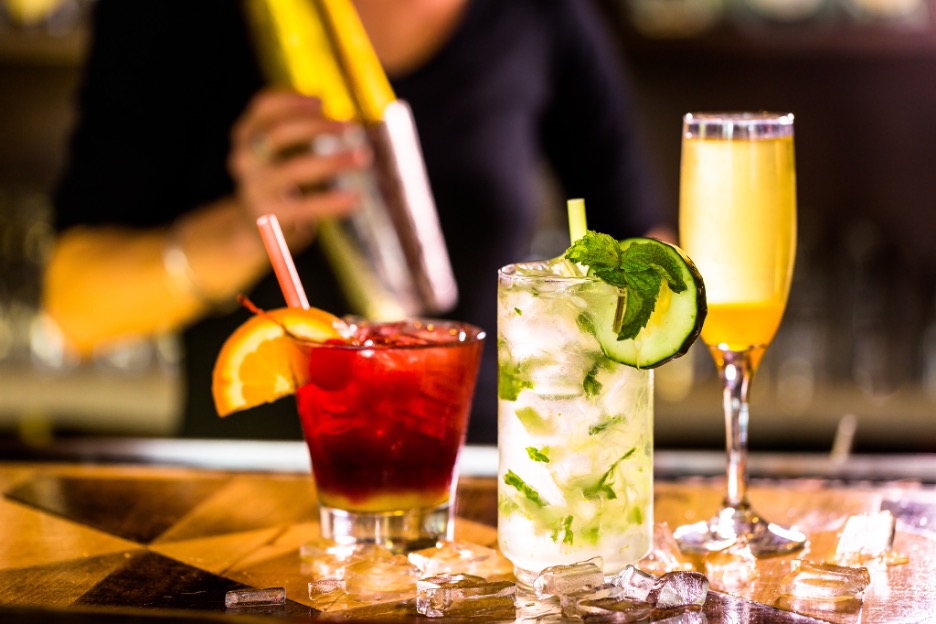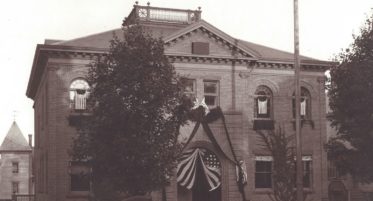
Prompt Images
I never intended to stop drinking. Then again, I never intended to drink enough that it occurred to me that I might want to stop. It doesn’t matter how much or how often I drank; I never considered myself a “problem drinker,” much less an alcoholic. However, I started to notice that drinking was affecting my body, my relationships, and my parenting, and I didn’t like it.
I had no idea what to expect when I stopped: what the process of stopping would look and feel like and how my body and my mind would react. When I thought of stopping, I thought of Alcoholics Anonymous, and that idea frightened me. I’m not an alcoholic, am I? AA just seemed so… serious. I deeply respect AA, it helps so many people, but it just wasn’t for me. The concept of giving everything up to a higher power does not resonate with me: “giving up” makes me feel helpless, which decreases my motivation and degrades my self-esteem. I wanted to see what I could do on my own terms, by myself, for myself. It turns out I was able to do quite a lot, and I learned a great deal in the process.
Things will get difficult before they get better.
Almost no one is able to quit drinking immediately; it takes several tries. It is one thing to develop the self-awareness that you want to change; it is quite another to actually implement that change. There are so many factors working to keep you in homeostasis that you have to be mentally and physically prepared for your body and mind’s resistance to any sort of change. Simply being prepared for this resistance will help you stay on course when things get challenging. Keep going. This process is not linear, and gains followed by regressions are normal. Have faith that you will get there, because you will.
The power of dopamine is real.
Respect it. Use this power to your own ends, because if you don’t, it will turn around and use you. Dopamine is known as the “feel-good neurotransmitter”—it is released when we fall in love, when we eat delicious food, when we drink alcohol, when we have sex. Think about how each of those things feel; who wouldn’t want more of them? Dopamine increases our level of arousal and causes us to seek out more of those good feelings, creating a reward system in our brain. When I do this, I feel good. Therefore I want more of this.
The effect of dopamine is evident in the first sips of your first drink. Your excitement revs up— now I can relax and connect with my friends! Now I am going to have fun! Now I can unwind from my stressful day! What we don’t realize is that it is not the alcohol that is causing the buzz of excitement in our brains; it is the dopamine. Alcohol is simply a tool to release dopamine. Therefore, it is not actually the alcohol that is creating all the pleasure: it is your body’s own dopamine.
Dopamine secretion, unfortunately, decreases over time. This is why the first drink tastes and feels so good, and subsequent ones don’t have the same effect. We drink more to try to get the same feeling we had while we were drinking the first drink, but biologically this isn’t possible. So we wind up drinking more than we want to, or should. This is how a habit and an addiction begins to build. In the hours after we stop drinking and the alcohol leaves our system, our bodies recover and begin to build up a craving for more dopamine. And, boom, you have your next drink and it tastes even better than you remember from the last time, because your body has been craving it and you are providing your brain with the reward it seeks.
When you can separate the dopamine (natural and feel-good and healthy) from the alcohol (toxic and hangover-inducing and disease-causing), it becomes easier to understand what’s happening when you drink, and how drinking is simply one tool to obtaining what you want and need (fun and excitement and human connection). And a truth emerges: drinking is not the healthiest or best way to feel good or connect with people. With this understanding, things begin to shift.
Your perspective will change.
You will begin to discover how alcohol use is ingrained, even glorified, in our culture, and that most people are not aware of this. When you think about it, alcohol is the only drug you have to justify not using. Why aren’t you drinking? Are you pregnant? When you think about it, why are other people so concerned about whether or not you’re drinking? You begin to realize that alcohol use has become a culture, carefully cultivated by the alcohol manufacturers who deliberately market FOMO to you. As in, if you don’t drink, it’s not possible to have fun. We all believe this idea on some level until we stop and examine it.
It takes guts, at first, to go out socially and not drink; there is no way around this. It feels awkward and strange the first few times. You feel out of the loop, lame, dorky, uptight, conspicuous. And certainly some people may notice you’re not drinking and may ask you about it. Some may even pressure you to drink (Note: this kind of person is not very self-aware and does not have your best interests at heart.)
As you become comfortable going out alcohol-free, your clearheadedness allows you to see the truth in social situations. As people around you drink, their brain function slows because alcohol, a depressant, reduces processing speed. People may start to repeat themselves. They may start to talk endlessly about themselves or their pet project or cause, becoming less able to listen and attune to whoever they are talking to. They may start to say things they wouldn’t otherwise, since alcohol also reduces inhibitions. You find you discover people’s true nature when you remain sober and they become impaired. You then understand that your own perception when you were drinking was off, and that you are now, finally, seeing things clearly; at the same time the people you are with are confusing their drinking/dopamine high with close interpersonal connection.
While disappointing, all of this, in turn, has the effect of making you more confident socially, rather than less. You realize that before, when you used alcohol to relieve social anxiety, you were actually doing the opposite. You were more anxious because you couldn’t see things clearly. You also begin to realize that drinking people become uninteresting because they are no longer fully present. And, frankly, if they are not fully present, there are other things you would rather be doing. You become much less interested in superficial relationships—now you crave authenticity. What were you so anxious about, before? You can’t remember.
Your relationships will change.
When you begin to see people and social situations more clearly, you realize that not everyone you’ve been spending time with aligns with your values. In fact, you begin to remember that you have values, and think about whether those values have changed, and what you want for yourself going forward. Interactions that are not aligned with your values start to feel uncomfortable and difficult, which you were unable to fully grasp while you were drinking. As you heal, misaligned relationships begin to fall away, and people begin to come into your life who are better aligned with your values.
This can be a messy and deeply uncomfortable process and sometimes very painful. My marriage completely fell apart, and reassembled altogether differently as my husband and I evaluated how we’d changed over the years, re-examined our values, and worked to figure out whether we could stay in alignment with each other. Our story, luckily, continues, for which I am profoundly grateful. Not everyone’s does.
When you stop drinking all your relationships will change, but especially your relationship to yourself. My trust in myself and my ability to understand and take care of myself skyrocketed, which increased my self-esteem and made me a more fun person to be around; more relaxed, calm, and happy. (How ironic—I spent my life thinking that alcohol made me easier to talk to and a more fun person to be around, when actually it is the complete opposite.) I also became an infinitely happier person when I reexamined my values and began to live by them.
Your body and your relationship to your body will change.
Without the distraction of alcohol, I became able to listen to my body in a way I’d never been able to before. I’d spent my life fighting the scale, unable to understand why weight maintenance was so hard for me, why I felt hungry all the time and couldn’t seem to eat only when I was hungry, and stop when I was full. Alcohol, of course, is sugar, so every time I drank I was upsetting my metabolism by perpetuating a dependency on sugar for energy. When I stopped revving up my body with the quick energy of alcohol, my metabolism regulated itself and I started to feel better and understand when I was hungry and when I wasn’t. This change was gradual over time and as I felt better, I felt motivated to seek out nutrition help to discover how I could feel even better.
Things will get easier.
As your body detoxifies and begins to heal, your mind begins to heal, too. I didn’t even realize I had brain fog (I thought I was just getting old!) until suddenly I realized that I was thinking more quickly and sharply than I had in years. I became much more effective, personally and professionally; I could accomplish a lot more than I ever could while drinking. What a joy to have the right word come to you when you’re searching for it, to make connections lightning fast, to work through problems faster and more easily than before. Few people talk about the mental clarity that comes from giving up alcohol, but for me it has been considerable.
My wallet benefitted, too. Suddenly I had a surplus of cash each month that I hadn’t had before. It’s amazing what a few hundred extra dollars will do for you each month; it’s like giving yourself a raise! Suddenly I could buy something extra I couldn’t before, I could go out to dinner more often. Depending on how much you drink, you could even be saving a monthly car payment. The savings from forgoing alcohol can be considerable; extra money can do wonders for your mood and outlook.
As my body and mind felt better, I began to seek out more experiences that made me feel good. I began to exercise more seriously. Exercise releases dopamine and makes you feel good, even high. I began to meditate; meditation is another way of releasing dopamine. I began to make more authentic friendships; connecting deeply with others releases dopamine. As my marriage improved, my intimate life improved; sex releases dopamine. I have found so many other ways of releasing dopamine now that alcohol seems a very poor substitute in comparison. Coming up on four years sober now, I don’t miss it at all.
It’s all worth it.
Stopping drinking is a huge change and will upend a lot of things in your life. Yes, you will be uncomfortable for a while as you adjust, before things turn around and start to get better. However, you will also grow profoundly as a person. I feel like I’ve leveled up not just once, but several times since I quit drinking. Has it been hard sometimes? Hell, yes. But it’s been 100 percent worth it. My life, my body and my mental state are so much better now, I have no desire to ever go back.
Resources
Bainbridge, J. (2020). Good Drinks: Alcohol-free recipes for when you’re not drinking for whatever reason. Ten Speed Press.
Grace, A. (2018). This Naked Mind: Control alcohol, find freedom, discover happiness & change your life. Avery.
Gray, C. (2018). The Unexpected Joy of Being Sober. Aster.
Pooley, C. (2019). The Sober Diaries: How one woman stopped drinking and started living. Coronet.



